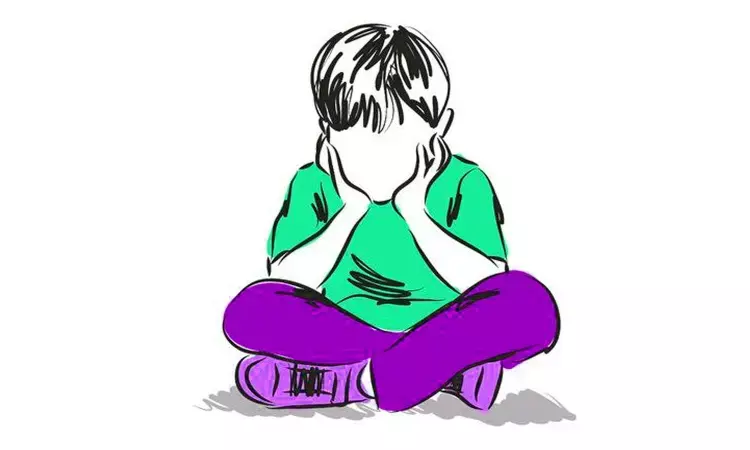- Home
- Medical news & Guidelines
- Anesthesiology
- Cardiology and CTVS
- Critical Care
- Dentistry
- Dermatology
- Diabetes and Endocrinology
- ENT
- Gastroenterology
- Medicine
- Nephrology
- Neurology
- Obstretics-Gynaecology
- Oncology
- Ophthalmology
- Orthopaedics
- Pediatrics-Neonatology
- Psychiatry
- Pulmonology
- Radiology
- Surgery
- Urology
- Laboratory Medicine
- Diet
- Nursing
- Paramedical
- Physiotherapy
- Health news
- Fact Check
- Bone Health Fact Check
- Brain Health Fact Check
- Cancer Related Fact Check
- Child Care Fact Check
- Dental and oral health fact check
- Diabetes and metabolic health fact check
- Diet and Nutrition Fact Check
- Eye and ENT Care Fact Check
- Fitness fact check
- Gut health fact check
- Heart health fact check
- Kidney health fact check
- Medical education fact check
- Men's health fact check
- Respiratory fact check
- Skin and hair care fact check
- Vaccine and Immunization fact check
- Women's health fact check
- AYUSH
- State News
- Andaman and Nicobar Islands
- Andhra Pradesh
- Arunachal Pradesh
- Assam
- Bihar
- Chandigarh
- Chattisgarh
- Dadra and Nagar Haveli
- Daman and Diu
- Delhi
- Goa
- Gujarat
- Haryana
- Himachal Pradesh
- Jammu & Kashmir
- Jharkhand
- Karnataka
- Kerala
- Ladakh
- Lakshadweep
- Madhya Pradesh
- Maharashtra
- Manipur
- Meghalaya
- Mizoram
- Nagaland
- Odisha
- Puducherry
- Punjab
- Rajasthan
- Sikkim
- Tamil Nadu
- Telangana
- Tripura
- Uttar Pradesh
- Uttrakhand
- West Bengal
- Medical Education
- Industry
Midlife loneliness is a risk factor for Dementia and Alzheimer's disease

Boston) - Being persistently lonely during midlife (ages 45-64) appears to make people more likely to develop dementia and Alzheimer's Disease (AD) later in life. However, people who recover from loneliness, appear to be less likely to suffer from dementia, compared to people who have never felt lonely.
Loneliness is a subjective feeling resulting from a perceived discrepancy between desired and actual social relationships. Although loneliness does not itself have the status of a clinical disease, it is associated with a range of negative health outcomes, including sleep disturbances, depressive symptoms, cognitive impairment, and stroke. Still, feeling lonely may happen to anyone at some point in life, especially under extreme and unresolved quickly circumstances such as the Covid-19 lockdowns. Yet, people differ in how long--or how "persistent"--they feel lonely for. Thus, it may be that people who recover from loneliness will experience different long-term consequences for their health than people who are lonely for many years.
In an effort to shed light on the relationship between these different forms of loneliness (transient and persistent loneliness) and the incident of AD, researchers from Boston University School of Medicine (BUSM) examined data involving cognitively normal adults from the Framingham Heart Study. Specifically, they investigated whether persistent loneliness more strongly predicted the future development of dementia and AD than transient loneliness. They also wanted to see whether this relationship was independent from depression and established genetic risk factors for AD, such as the Apolipoprotein ε4 (APOE ε4) allele.
After taking effects of age, sex, education, social network, living alone, physical health and genetic risk into account, persistent loneliness was associated with higher risk, whereas transient loneliness was linked to lower risk of dementia and AD onset after 18 years, compared with no loneliness.
"Whereas persistent loneliness is a threat to brain health, psychological resilience following adverse life experiences may explain why transient loneliness is protective in the context of dementia onset," explained corresponding author Wendy Qiu, MD, PhD, professor of psychiatry and pharmacology & experimental therapeutics at BUSM. In light of the current pandemic, these findings raise hope for people who may suffer from loneliness now, but could overcome this feeling after some time, such as by using successful coping techniques or following a policy change in the physical distancing regulations.
According to the researchers, these results motivate further investigation of the factors that make individuals resilient against adverse life events and urges to tailor interventions to the right person at the right time to avert persistency of loneliness, promote brain health and AD prevention.
Hina Zahid Joined Medical Dialogue in 2017 with a passion to work as a Reporter. She coordinates with various national and international journals and association and covers all the stories related to Medical guidelines, Medical Journals, rare medical surgeries as well as all the updates in the medical field. Email: editorial@medicaldialogues.in. Contact no. 011-43720751
Dr Kamal Kant Kohli-MBBS, DTCD- a chest specialist with more than 30 years of practice and a flair for writing clinical articles, Dr Kamal Kant Kohli joined Medical Dialogues as a Chief Editor of Medical News. Besides writing articles, as an editor, he proofreads and verifies all the medical content published on Medical Dialogues including those coming from journals, studies,medical conferences,guidelines etc. Email: drkohli@medicaldialogues.in. Contact no. 011-43720751


